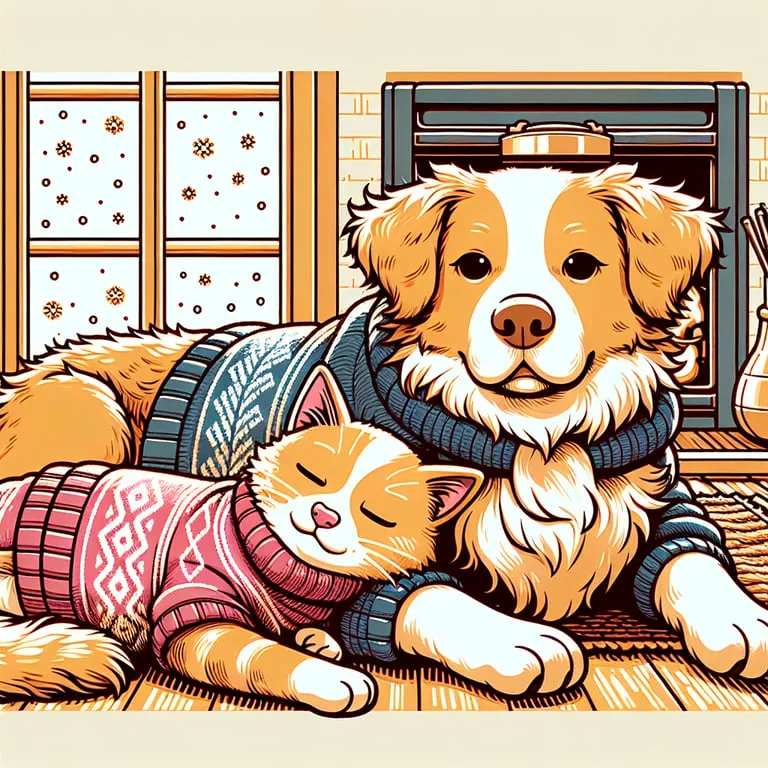 In the age of social media, luxury pets have become a status symbol for many. Behind the glossy images, however, lie significant financial and ethical considerations. Understanding these complexities is crucial for potential luxury pet owners.
In the age of social media, luxury pets have become a status symbol for many. Behind the glossy images, however, lie significant financial and ethical considerations. Understanding these complexities is crucial for potential luxury pet owners.

The Economic Boom and Challenges of Luxury Pet Ownership
The Financial Landscape of Luxury Pet Care
In recent years, the luxury pet care market has experienced remarkable growth. As of 2025, projections suggest that the global pet accessories market will soar to $6.7 billion by 2033. This surge highlights the increasing demand for high-end pet products, from $470 poop bag holders by luxury brands to custom kennels costing up to $60,000. However, this financial commitment raises an important question: does spending more guarantee a happier pet?
The Financial Reality of Luxury Pet Expenses
Beyond accessories, the cost of maintaining a luxury pet can be startling. For instance, feeding a large dog exclusively on wet food can incur annual expenses of up to $7,000. Grooming, often perceived as a basic need, involves more than just aesthetics; it’s essential for the health of breeds like the Afghan Hound, requiring daily brushing and weekly baths.
Economic Considerations for Pet Health
The healthcare needs of luxury pets add another layer of financial commitment. Procedures such as spaying or neutering exotic animals, like rabbits, can exceed $200. Furthermore, specialized pet insurance, available through providers such as Nationwide, is advisable to cover unexpected medical expenses.
Legalities and Restrictions of Exotic Pets
The Legal Landscape
Before acquiring a luxury or exotic pet, understanding local laws is paramount. For instance, California prohibits owning ferrets and primates, while Texas requires specialized permits for exotic animals. These regulations are in place to ensure the safety of both the pets and the public.
Legal Implications of Non-Compliance
Disregarding these laws can lead to severe repercussions, including substantial fines and the potential confiscation of the pet. Potential owners must thoroughly research legal requirements to avoid these outcomes.
The Commitment of Care: From Habitats to Behavior
Creating an Ideal Environment
Luxury pets often have specific habitat requirements. Owners of exotic species like large reptiles or primates must invest in specialized enclosures that maintain optimal temperature, humidity, and noise levels. Without these, the health of the pet can be adversely affected.
Understanding Behavioral Needs
Beyond physical environments, luxury pets have unique behavioral requirements. For example, the highly intelligent Border Collie demands constant mental and physical stimulation, while African Grey Parrots, capable of living up to 60 years, require social interaction for their well-being.
Introducing New Pets to the Household
Integrating a luxury pet into a household with existing pets requires careful planning. The dynamic within the home must be managed to ensure harmony, avoiding potential conflicts and ensuring the wellness of all animals involved.
Ethical and Sustainable Ownership
Ethical Breeding Practices
Choosing a pet involves a commitment to ethical sourcing. Engaging with reputable breeders who prioritize animal health over financial gain is crucial to avoid supporting inhumane practices that result in genetic disorders.
The Long-Term Responsibility
Owning a luxury pet is not a temporary fad; it is a long-term commitment requiring substantial resources and dedication. Potential owners must assess their ability to provide consistent care beyond the pet’s aesthetic appeal.
By considering these factors, prospective luxury pet owners can ensure they are well-prepared for the responsibilities and challenges involved, fostering a fulfilling relationship with their exceptional companions.
https://www.petmediapress.com/